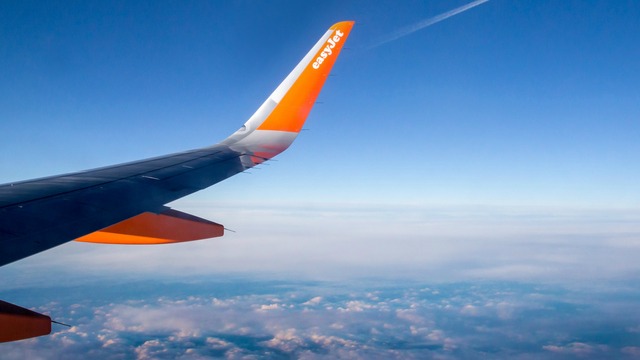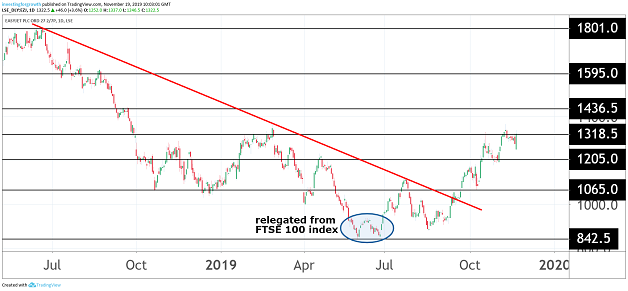easyJet flying back into FTSE 100 index
Worth over £5bn after a stunning three-month rally, our head of markets spots a promotion candidate.
19th November 2019 10:34
by Richard Hunter from interactive investor
Worth over £5bn after a stunning three-month rally, our head of markets spots a promotion candidate.

easyJet (LSE:EZJ) is fighting back after a torrid year which brought a tough trading environment, and which culminated in relegation from the FTSE 100 index in June.
Some of the battle scars are evident. Adjusted pre-tax profit fell 26%, revenues per seat declined 1.8% and the load factor – a measure of how well airlines fill their planes - also dipped to 91.5%.
Meanwhile, Return on Capital Employed decreased by over 3% and the overall dividend for the year was reduced by 25%. Costs overall increased, with factors outside the company's control in the form of fuel and currency movements making a contribution.
More broadly, easyJet has recognised some inevitable weakness in consumer confidence, given the hazy economic outlook delivered by Brexit uncertainty and now compounded by the imminent general election. The unfortunate costs of doing business will always be in evidence, whether in the form of terrorism, adverse weather conditions, virus outbreaks or strikes, which, taken in tandem, have been enough to see off smaller competitors in recent years.

Source: TradingView Past performance is not a guide to future performance
There is also evidence that easyJet is running an increasingly streamlined operation given these difficulties, and there are a number of promising indications within the results. Revenues increased by 8.3% - including passenger revenues rising by 6.9%, helped along by the strikes at British Airways and Ryanair – passenger numbers were ahead, and the company delivered cost savings of £139 million over the year.
Ancillary revenues also surged by 13.7% and despite the dividend cut the shares still yield 4.6%, which is an attraction in the current environment of income seeking investors.
There may also be additional promise from the launch of easyJet Holidays, which is expected to break even in 2020 and which is looking to capitalise in part from the unfortunate demise of Thomas Cook. In terms of the outlook, forward bookings for the first half of next year are already slightly ahead. Ultimately, but positively, the disappointment of the first half of the year's trading was largely undone by the strength of the second half.
This has been reflected in a share price which has climbed 29% over the last three months, and which has actually left the shares in positive territory for the year, where a 3% gain compares to a 10% rise for the wider FTSE 250. Indeed, if the shares can maintain this altitude, they are a shoo-in for retaining their FTSE 100 status in the December reshuffle.
This has not quite fed through to the general market view of the shares as yet, since significant (and sometimes unforeseen) challenges are an intrinsic part of the airline sector. The consensus of the shares as a 'hold' could, however, be subject to upgrades if the current momentum is maintained.
These articles are provided for information purposes only. Occasionally, an opinion about whether to buy or sell a specific investment may be provided by third parties. The content is not intended to be a personal recommendation to buy or sell any financial instrument or product, or to adopt any investment strategy as it is not provided based on an assessment of your investing knowledge and experience, your financial situation or your investment objectives. The value of your investments, and the income derived from them, may go down as well as up. You may not get back all the money that you invest. The investments referred to in this article may not be suitable for all investors, and if in doubt, an investor should seek advice from a qualified investment adviser.
Full performance can be found on the company or index summary page on the interactive investor website. Simply click on the company's or index name highlighted in the article.